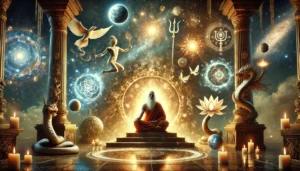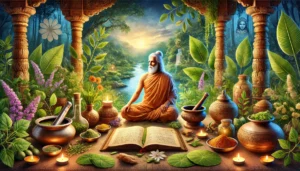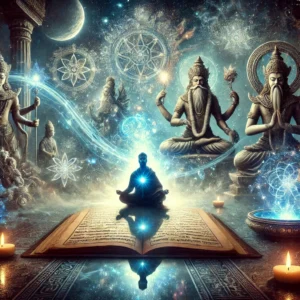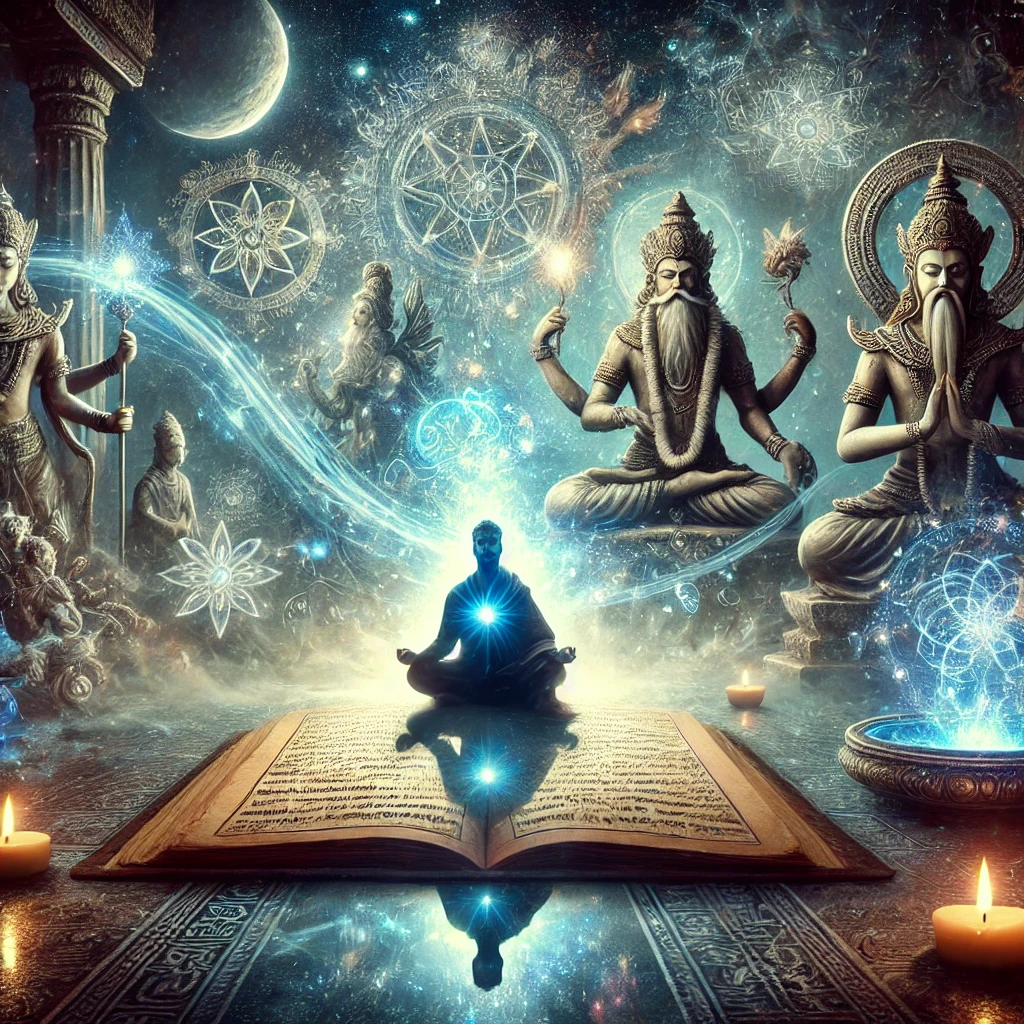
How mythology reflects the human soul
Mythology as a Tool for Self-Reflection and Spiritual Growth
Mythology has played an integral role in shaping human consciousness, providing wisdom that transcends generations, cultures, and religions. While myths are often dismissed as ancient folklore or imaginative storytelling, they hold deep psychological and spiritual significance. They serve as reflections of our inner struggles, moral dilemmas, and the eternal quest for self-discovery and enlightenment.
In essence, mythology is not just about gods, demons, or celestial wars—it is about us. Each character, event, and symbol in myths represents aspects of our psyche, guiding us toward self-awareness, transformation, and spiritual evolution. By engaging with mythology, we can cultivate deeper self-reflection and accelerate our spiritual growth.
The Symbolic Nature of Myths and the Human Psyche
At its core, mythology is deeply symbolic, offering insights into the universal human experience. Every culture has its own mythological framework, yet the themes remain strikingly similar. This is because myths arise from a collective unconscious, as proposed by Carl Jung, the Swiss psychologist who emphasized archetypal symbols that appear across civilizations.
For example:
- The hero’s journey, as depicted in Hindu epics (Ramayana, Mahabharata), Greek myths (Odyssey), and even modern narratives (Star Wars, Harry Potter), represents the inner journey of every individual. We all face trials, doubts, and transformations before emerging wiser.
- The descent into the underworld, as seen in Persephone’s tale or Nachiketa’s journey to Yama, symbolizes the deep introspection required for true wisdom. It reflects our need to confront inner darkness before achieving enlightenment.
- The battle between good and evil is often not external but internal. The war of Kurukshetra in the Bhagavad Gita is an allegory for the conflict between righteousness (dharma) and ego-driven desires (adharma).
Through myths, we see reflections of our own inner battles, helping us understand and navigate the complexities of life.
Table of Contents

How mythology reflects the human soul
Myths as Spiritual Roadmaps
Spirituality is often a personal quest, but myths provide a universal roadmap to enlightenment. Almost all spiritual traditions use myths to illustrate the soul’s journey from ignorance to self-realization.
- Overcoming the Ego and Attachments
One of the greatest challenges in spiritual growth is overcoming the ego. Mythological figures such as Ravana (from Ramayana) or Hiranyakashipu (from Bhagavata Purana) represent the consequences of unchecked arrogance and desires. Their downfall serves as a warning, urging us to practice humility, surrender, and self-discipline.
In contrast, Lord Rama’s unwavering devotion to duty (dharma) and Lord Buddha’s renunciation of material pleasures show us the path to inner peace.
- The Power of Surrender and Devotion
Many myths emphasize bhakti (devotion) as a means to transcend suffering. The unwavering faith of Mirabai, Prahlada, and Hanuman demonstrates how surrendering to a higher power brings grace and protection. Devotional myths remind us that genuine love and faith can dissolve the ego and open the heart to divine wisdom.
- The Role of Trials and Challenges
No hero in mythology attains enlightenment without enduring hardships. In the Mahabharata, Arjuna is paralyzed by doubt before Krishna guides him toward self-realization. Similarly, Lord Shiva drinking the deadly halahala poison during the Samudra Manthan is a metaphor for the necessity of enduring suffering to attain higher wisdom.
These stories remind us that life’s trials are not punishments but opportunities for growth. Every setback and challenge is a stepping stone toward spiritual evolution.
Self-Reflection Through Mythological Archetypes
Engaging with mythology allows us to reflect on our own lives through different archetypes. By identifying with mythological figures, we gain insights into our strengths, weaknesses, and personal journeys.
- Are you an Arjuna, struggling with self-doubt?
If you often feel overwhelmed by difficult choices, Krishna’s guidance to Arjuna in the Bhagavad Gita teaches us to embrace our dharma with courage and clarity.
- Do you resonate with Hanuman, unaware of your full potential?
Hanuman initially forgets his immense powers, much like we underestimate our own capabilities. His story inspires us to awaken our inner strength.
- Are you facing inner demons like Ravana (ego) or Kumbhakarna (ignorance)?
Recognizing our flaws is the first step toward transformation. By acknowledging and working through them, we can strive toward self-improvement.
These archetypes act as mirrors, helping us understand our behavioral patterns and the spiritual lessons we need to embrace.

How mythology reflects the human soul
Applying Mythological Lessons to Modern Life
Myths are timeless because they address fundamental aspects of human nature. Even in today’s fast-paced world, these ancient stories provide valuable insights.
- Finding Balance in Chaos
In an era of stress and distractions, the concept of dharma (righteous duty) from the Bhagavad Gita reminds us to stay focused on our responsibilities while maintaining inner detachment.
- Embracing Change and Transformation
Lord Shiva’s dance of destruction (Tandava) symbolizes the inevitability of change. Instead of fearing endings, we should welcome transformation as a necessary part of growth.
- Cultivating Patience and Perseverance
The churning of the ocean (Samudra Manthan) teaches us that great rewards—whether wisdom, success, or spiritual enlightenment—come only through perseverance and teamwork.
- Recognizing the Illusion of the Material World
The concept of maya (illusion) in Hindu and Buddhist mythology reminds us that excessive attachment to material pleasures leads to suffering. By practicing detachment and mindfulness, we can find true contentment.
Conclusion: Mythology as a Path to Enlightenment
Mythology is more than a collection of stories—it is a profound guide to self-discovery and spiritual awakening. Whether we seek personal growth, moral clarity, or divine connection, myths provide a timeless source of wisdom.
By engaging with mythology mindfully, we can:
- Reflect on our own life’s journey and struggles.
- Identify and transcend personal limitations.
- Align ourselves with higher principles like dharma, bhakti, and self-realization.
In the end, myths remind us that the journey of the soul is eternal. By learning from these sacred stories, we do not merely read history—we uncover the divine essence within ourselves.
(FAQs) for “Mythology: A Mirror for the Soul and a Path to Spiritual Growth”:
- What is the connection between mythology and self-reflection?
Mythology serves as a mirror for human emotions, struggles, and aspirations. The stories of gods, heroes, and mythical beings reflect our own inner conflicts, desires, and personal growth journeys, helping us better understand ourselves.
- How can mythology aid in spiritual growth?
Myths often contain deep philosophical and spiritual lessons. By studying them, we can gain wisdom about morality, purpose, and the nature of existence, which can guide us on our spiritual path.
- Are myths just stories, or do they have a deeper meaning?
While myths are often told as stories, they hold symbolic meanings and universal truths. They address fundamental human experiences—birth, death, love, loss, and transformation—offering insights that go beyond literal interpretations.
- How can I use mythology for personal development?
You can analyze mythological stories in the context of your own life. Identify characters, events, or challenges that resonate with you. This reflection can reveal patterns in your thoughts, emotions, and behaviors, helping you grow.
- Do different cultures share common mythological themes?
Yes, many cultures have myths that share similar themes, such as creation, destruction, heroism, and redemption. These “archetypes,” as Carl Jung described them, point to universal aspects of the human psyche and spiritual journey.
- Can mythology help in overcoming challenges?
Absolutely. Mythological heroes often face trials that symbolize real-life struggles. By studying their journeys, we can learn about resilience, courage, and wisdom, which can inspire us to navigate our own difficulties.
- How does mythology relate to modern spirituality?
Many spiritual traditions still draw upon ancient myths. Even in the modern world, mythology influences personal spirituality, meditation, and mindfulness practices by offering timeless lessons about the nature of existence.
- Is mythology relevant in today’s scientific and rational world?
Yes, mythology continues to shape literature, psychology, and philosophy. While science explains the physical world, mythology provides meaning, ethical guidance, and insight into human nature, making it relevant even today.
- Can reading mythology improve mental well-being?
Yes. Mythological stories can provide comfort, wisdom, and a sense of connection to something greater. They help process emotions, understand life’s cycles, and find purpose, all of which contribute to mental well-being.
- Where can I start if I want to explore mythology for spiritual growth?
Start with foundational myths from your own cultural background or explore universal mythologies like Hindu, Greek, Norse, or Egyptian. Books like Joseph Campbell’s “The Hero with a Thousand Faces” or Carl Jung’s works on archetypes can also provide deep insights.
Summary
Mythology: A Mirror for the Soul and a Path to Spiritual Growth
Mythology has been an integral part of human civilization, not just as a means of storytelling but as a profound tool for self-reflection and spiritual evolution. Across cultures, myths are more than just legends—they encapsulate deep wisdom, moral values, and metaphysical truths that resonate with the human experience. These ancient narratives act as mirrors, reflecting our inner struggles, aspirations, and spiritual quests.
At their core, myths explore universal themes such as the battle between good and evil, the hero’s journey, transformation, and divine intervention. Through these symbolic tales, individuals can recognize their own challenges, fears, and desires, leading to deeper self-awareness. By studying mythology, one can uncover hidden aspects of the psyche, confront inner conflicts, and find guidance for personal growth.
Moreover, mythology serves as a bridge between the material and the spiritual, offering insights into higher consciousness and the divine. The gods, heroes, and sages in myths are not just characters; they embody archetypes that exist within each of us, inspiring us to embark on our own spiritual journeys. These stories remind us that life itself is a sacred journey of learning, transformation, and enlightenment.
Ultimately, mythology is a timeless reservoir of wisdom that continues to shape human consciousness. It provides us with tools to navigate life’s uncertainties, seek inner harmony, and cultivate a deeper connection with the divine, making it an invaluable guide for self-reflection and spiritual growth.
Unlock the Ancient Wisdom of Sanatan Dharma – Join Us on YouTube!
👉 Subscribe now to Prachin Sanatan Dharma and embark on a journey of enlightenment.
Explore timeless teachings, spiritual insights, and cultural richness on our YouTube channel, Prachin Sanatan Dharma. Dive deep into the essence of Sanatan Dharma through captivating videos that inspire and educate.
Related Articles
- Restful Nights: Ayurvedic Remedies and Traditional Indian Practices to Overcome Insomnia and Late-Night Habits
- The Tridevi: Lakshmi, Saraswati, and Parvati – Their Roles and Powers
- “Divine Creatures of Ancient Indian Scriptures: Exploring the Role of Animals in the Vedas, Puranas, and Mahabharata”
- Nature and Spirituality: Exploring the Sacred Essence of the Himalayas, Ganga, and Other Natural Wonders”
- “Reviving the Gurukul System: Relevance and Lessons for Modern Education”
- “Exploring Greek and Indian Mythology: Similarities Between Greek and Indian Mythology “
- “Embracing Sattvic Living: Harmonizing Mind, Body, and Soul Through Food and Lifestyle”
- “Charity and Prosperity: Exploring the Concept of Daan and Its Financial Relevance in Modern Life”
- How to Build an Eco-Friendly Home Inspired by Vastu Shastra
- Comparison of Ancient and Modern Sports: How Traditional Sports Have Influenced Contemporary Games
- “Timeless Lessons from Ancient Tales: Linking Samudra Manthan and Ganga’s Descent to Modern Ecological Challenges”
- “Reviving Sanskrit: How AI is Preserving Ancient Languages for the Future”
- “Mathura: The Sacred Land of Lord Krishna’s Divine Leelas”
- Investing for Future Generations: Lessons from Indian Traditions on Legacy Building and Wealth Preservation
- “Ancient Indian Wisdom: Timeless Lessons for Tackling Today’s Climate Crisis”
- “Artificial Intelligence and Spirituality: Transforming Ancient Practices for the Modern World”
- “Gold and Real Estate in India: Timeless Assets Shaping Financial Strategies”
- Tradition Meets Innovation: The Evolution of Technology in Hindu Rituals
- End-of-World Myths: Exploring Kali Yuga in Hinduism and Ragnarök in Norse Mythology
- Garuda, Pegasus, and Dragons: The Universal Ties of Mythical Beasts Across Cultures
- “Ancient Vimanas: Mythical Flying Machines or Evidence of Advanced Technology?”
- Time Travel in Hindu Mythology: The Fascinating Tales of Kakudmi and King Raivata
- “Divine Feminine Power in Hindu Mythology: The Legends of Durga, Saraswati, and Lakshmi”
- “Divine Beings of Sanatan Dharma: The Spiritual Significance of Sacred Animals in Hinduism”
- “Symbolism in Mythological Art: Unlocking Hidden Meanings in Ancient Temple Carvings”
- “Exploring Technological Advancements in Ancient India and Civilizations: Vimana, Metallurgy, & Water Management systems”
- Unveiling the Mysteries: Ancient Temples of Sanatan Dharma , Mysterious Temples of India
- “The Scientific Knowledge of Sanatan Dharma: Ancient Wisdom Meets Modern Science”
- Ancient Indian Sports and Games: Celebrating a Legacy of Skill, Strength & Strategy”
- “Exploring the Cosmic Link: The Connection Between Astronomy and Vedic Astrology”
- The Power of Sanskrit: Unlocking the Divine Language of the Gods
- “The End of Kaliyuga: A Sanatan Insight into the World’s Final Chapter”
- Explore more articles on Prachin Sanatan Yuga.
How mythology reflects the human soul How mythology reflects the human soul How mythology reflects the human soul How mythology reflects the human soul How mythology reflects the human soul How mythology reflects the human soul How mythology reflects the human soul How mythology reflects the human soul How mythology reflects the human soul How mythology reflects the human soul
How mythology reflects the human soul How mythology reflects the human soul How mythology reflects the human soul How mythology reflects the human soul How mythology reflects the human soul How mythology reflects the human soul How mythology reflects the human soul How mythology reflects the human soul How mythology reflects the human soul How mythology reflects the human soul
How mythology reflects the human soul How mythology reflects the human soul How mythology reflects the human soul How mythology reflects the human soul How mythology reflects the human soul How mythology reflects the human soul How mythology reflects the human soul How mythology reflects the human soul How mythology reflects the human soul How mythology reflects the human soul
Mythology has been an integral part of human civilization, not just as a means of storytelling but as a profound tool for self-reflection and spiritual evolution. Across cultures, myths are more than just legends—they encapsulate deep wisdom, moral values, and metaphysical truths that resonate with the human experience. These ancient narratives act as mirrors, reflecting our inner struggles, aspirations, and spiritual quests.
Mythology has been an integral part of human civilization, not just as a means of storytelling but as a profound tool for self-reflection and spiritual evolution. Across cultures, myths are more than just legends—they encapsulate deep wisdom, moral values, and metaphysical truths that resonate with the human experience. These ancient narratives act as mirrors, reflecting our inner struggles, aspirations, and spiritual quests.
Mythology has been an integral part of human civilization, not just as a means of storytelling but as a profound tool for self-reflection and spiritual evolution. Across cultures, myths are more than just legends—they encapsulate deep wisdom, moral values, and metaphysical truths that resonate with the human experience. These ancient narratives act as mirrors, reflecting our inner struggles, aspirations, and spiritual quests.
